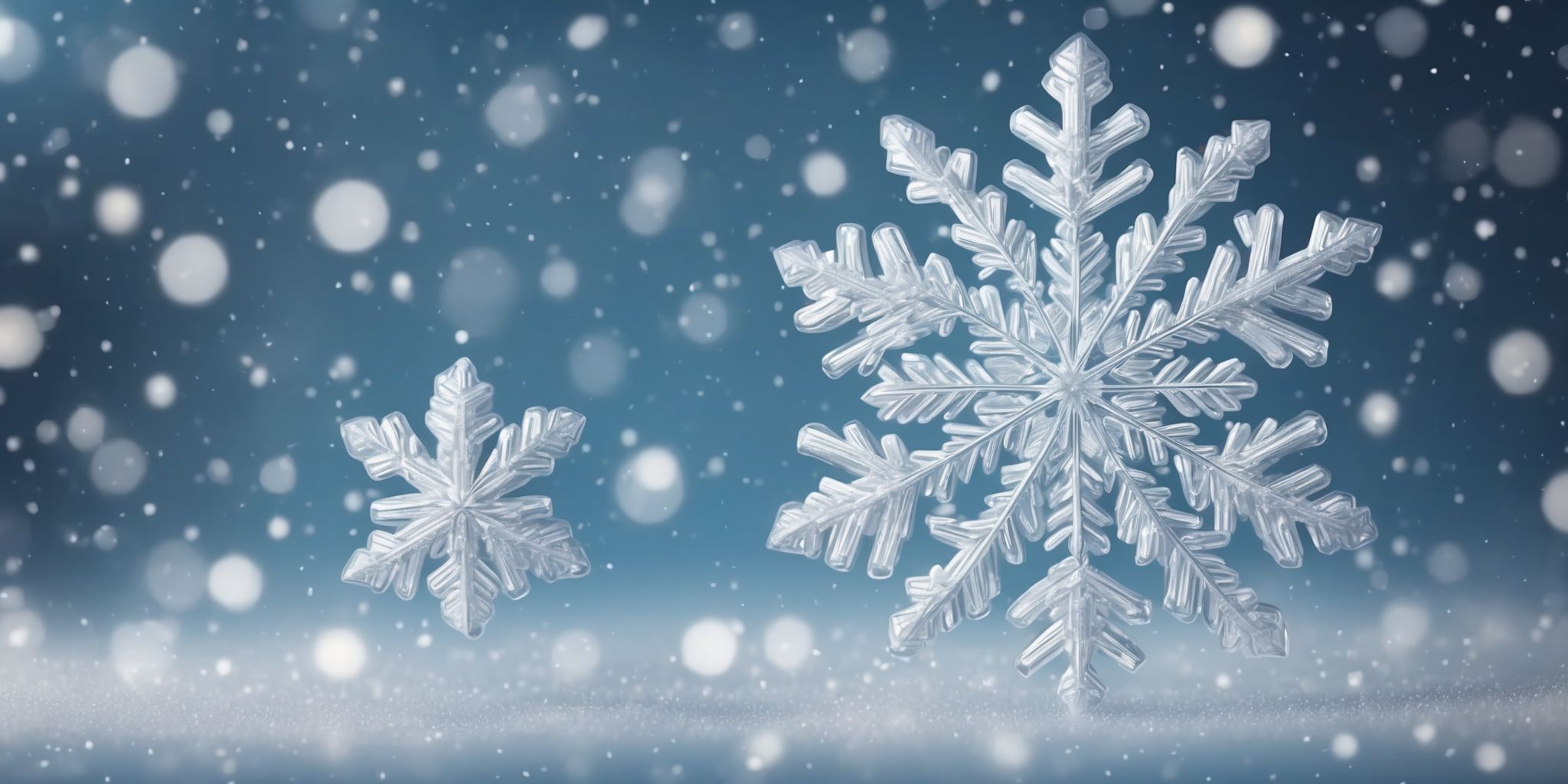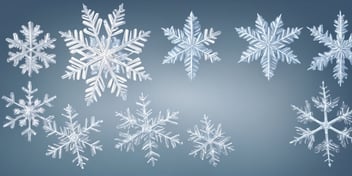- Blog
- Christmas questions
- What is the history of Hanukkah and its connection to Christmas?

Have you ever wondered about the intertwined history of Hanukkah and Christmas? These two festive holidays may appear to belong to different religions, but they share striking similarities and fascinating connections. So, let's dive into the enchanting tale of their origins, shedding light on the historical threads that intertwine Hanukkah and Christmas, forging a unique bond that celebrates the triumph of light over darkness and the enduring spirit of hope.
What is Hanukkah?
- Hanukkah is an eight-day Jewish holiday also known as the Festival of Lights.
- It commemorates the rededication of the Holy Temple in Jerusalem during the Maccabean Revolt in the 2nd century BCE.
- The celebration begins on the 25th of Kislev in the Hebrew calendar, usually falling in late November or December.
- The main ritual is the lighting of the menorah, a nine-branched candelabrum.
- Each night, an additional candle is lit, symbolizing the miracle of one day's worth of oil lasting for eight days.
- Families gather to pray, sing songs, exchange gifts, and enjoy special foods like latkes and sufganiyot (jelly-filled donuts).
What is Christmas?
Christmas is an annual Christian holiday celebrated on December 25th. It commemorates the birth of Jesus Christ and holds significant cultural and religious importance. The holiday is marked by various customs and traditions, including attending church services, exchanging gifts, decorating homes with lights and ornaments, and gathering with family and friends for festive meals.
Christmas is often associated with themes of love, joy, and generosity, and it serves as a time for people to come together, express gratitude, and show kindness to others. The holiday has also evolved to include secular aspects, such as Santa Claus and gift-giving, which have become ingrained in popular culture.
Historical Origins
Origins of Hanukkah
Hanukkah, also known as the Festival of Lights, commemorates the victory of the Jewish rebels, led by the Maccabees, against the Seleucid Empire in the 2nd century BCE. It is rooted in the story of the rededication of the Second Temple in Jerusalem. According to tradition, after the victory, the Maccabees found only enough consecrated oil to light the temple menorah for one day. Miraculously, the oil lasted for eight days. This event is celebrated by lighting the menorah for eight nights, with an additional candle added each night. Hanukkah serves as a reminder of the Jewish struggle for religious freedom and the power of faith.
Origins of Christmas
The origins of Christmas can be traced back to ancient pagan winter festivals that celebrated the return of light and the rebirth of nature. The Roman festival of Saturnalia, for example, involved feasting, gift-giving, and merry-making. Over time, as Christianity spread, the holiday absorbed certain traditions from these pagan festivities. In the 4th century, December 25th was chosen as the official date for Christmas to coincide with the Roman celebration of the birth of the sun god.
Today, Christmas is primarily recognized as the commemoration of the birth of Jesus Christ, but it also incorporates various cultural and secular elements that have evolved over centuries.
Timeline of Hanukkah and Christmas
Ancient Origins
Hanukkah and Christmas both have ancient origins rooted in historical events. Hanukkah commemorates the rededication of the Jewish temple in Jerusalem after the successful Maccabean revolt against the Seleucid Empire. This revolt restored Jewish religious practices and traditions. On the other hand, Christmas celebrates the birth of Jesus Christ, a significant figure in Christianity. While the two holidays have distinct origins and meanings, both have deep historical and religious significance for their respective faith communities. Understanding the ancient origins of these holidays helps to appreciate the rich cultural traditions and values associated with Hanukkah and Christmas today.
Medieval and Renaissance Periods
During the Medieval and Renaissance periods, both Hanukkah and Christmas underwent significant developments. Christian celebrations of Christmas became more elaborate with the introduction of nativity scenes and caroling, while Hanukkah celebrations gained popularity among Jews in Europe. In some instances, elements of Christmas traditions influenced the way Hanukkah was celebrated, such as the addition of gift-giving.
However, it's important to note that these traditions evolved within their respective religious contexts, and while there may be similarities, each holiday has its own distinct significance and practices.
Modern Celebrations
Today, both Hanukkah and Christmas are celebrated with enthusiasm and cultural significance. Families gather to light the menorah and exchange gifts during Hanukkah. There is a focus on traditional foods like latkes and playing the Dreidel game. On the other hand, Christmas is marked by decorating trees, exchanging presents, and attending religious services. Families often come together for festive meals and enjoy activities like caroling and watching holiday movies. These celebrations provide an opportunity for people of different cultures to come together and share in the joy and traditions of the season.
Similarities and Connections
Festive Lighting
--Festive Lighting--
- Both Hanukkah and Christmas are associated with the beautiful tradition of festive lighting.
- In Hanukkah, a nine-branched candelabrum called a menorah is lit each night for eight nights.
- Christmas is often celebrated with the illumination of Christmas lights on trees and houses.
- Festive lighting symbolizes hope, joy, and the triumph of light over darkness.
- Observing and appreciating the significance of festive lighting in both holidays promotes understanding and respect for cultural traditions.
- It is a time for families to come together, create a warm ambiance, and share in the joy of the holiday season.
Gift Giving
Gift giving is a significant aspect of both Hanukkah and Christmas. It is a way for individuals to express love and appreciation for their loved ones. In the context of "Christmas questions," understanding the significance of gift giving can help foster respect for cultural traditions.
In Hanukkah, the tradition of giving gifts, often called gelt, has evolved from small amounts of money to include a variety of presents. These gifts are typically given to children as a way to celebrate the holiday and emphasize the value of generosity.
Similarly, Christmas gift giving is rooted in the story of the Three Wise Men who brought gifts to baby Jesus. Today, it has become a widespread practice among Christians worldwide, symbolizing the act of giving as an expression of love and kindness.
Family Gatherings and Feasts
- Both Hanukkah and Christmas hold significant importance as occasions for gathering with family and sharing meals together.
- Families come together to celebrate and enjoy traditional dishes, creating a sense of unity and connection.
- Each holiday has its unique culinary traditions, such as latkes (potato pancakes) for Hanukkah and roast turkey for Christmas.
- Family members often participate in cooking and food preparation, strengthening bonds and creating cherished memories.
- Sharing meals during these holidays fosters a sense of community and reinforces the values of togetherness and gratitude.
Remember, these celebrations provide an opportunity for families to come together, no matter their specific traditions or backgrounds.
Christmas Questions
Is Hanukkah the Jewish Christmas?
While Hanukkah and Christmas share some similarities during the holiday season, they are distinct celebrations with different religious and cultural significance. Hanukkah is an eight-day Jewish festival commemorating the rededication of the Second Temple in Jerusalem. It revolves around the lighting of the menorah, eating traditional foods like latkes, and playing a game with a spinning top called a dreidel. In contrast, Christmas is a Christian holiday that celebrates the birth of Jesus Christ. It involves exchanging gifts, decorating Christmas trees, and attending church services. It is important to respect and understand the unique traditions and meanings of each holiday, rather than assuming they are interchangeable.
Do Jews celebrate Christmas?
Jews do not generally celebrate Christmas as it is a Christian holiday. However, there are Jews who may partake in certain festive activities out of respect for their non-Jewish friends or family members. Some might exchange gifts, attend parties, or enjoy the holiday decorations. This is more of a personal choice and varies among individuals.
It is important to respect and understand each person's cultural and religious practices, allowing for inclusivity and diversity during the holiday season.
Can Jews have Christmas trees?
While Jews can choose to have Christmas trees, it is not a common practice within Jewish households. Since Christmas trees have religious significance in the Christian faith, Jews typically do not incorporate this tradition into their own celebrations of Hanukkah. However, individuals from interfaith families or those who appreciate the festive spirit of the holiday may choose to have a Christmas tree as a cultural symbol or for decorative purposes.
Are there any connections between the two holidays today?
In today's world, there are some connections that exist between Hanukkah and Christmas. Many people, regardless of their religious background, embrace the festive spirit of the holiday season. Shared elements such as festive lighting and decorations can be found in both Hanukkah and Christmas celebrations.
Additionally, some families with mixed religious backgrounds might incorporate traditions from both holidays to create a unique and inclusive celebration.
For example, they may light the Hanukkah menorah alongside a Christmas tree. These connections between the two holidays demonstrate how cultural traditions can intertwine and evolve over time, fostering a sense of unity and shared celebration during the holiday season.
Over to you
Hanukkah is a Jewish festival that commemorates the rededication of the Second Temple in Jerusalem. It originated in the 2nd century BCE and is celebrated for eight nights and days. The festival is closely connected to Christmas in terms of their timing during the December holiday season. However, their historical origins and religious significance differ greatly. Hanukkah is rooted in the Maccabean revolt against oppressive Greek rule, while Christmas celebrates the birth of Jesus Christ.
Nevertheless, both holidays have become important cultural events that bring joy and celebration to millions around the world.
Read On

How do different religions view and celebrate Christmas?
Christmas, it's that time of the year when streets dazzle with colorful lights, carolers sing...

The Joy of Merry Christmas: Celebrating with Reindeer and Religious Traditions
Ah, the magical season is upon us once again! As the temperatures drop and carols fill the air, we...

Unraveling the Origins of Christmas Day: A Historical Perspective
Ah, that time of year is upon us once again - twinkling lights, cozy fireplaces, and the joyful...